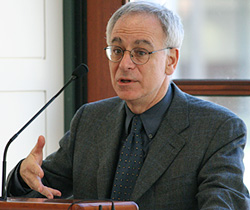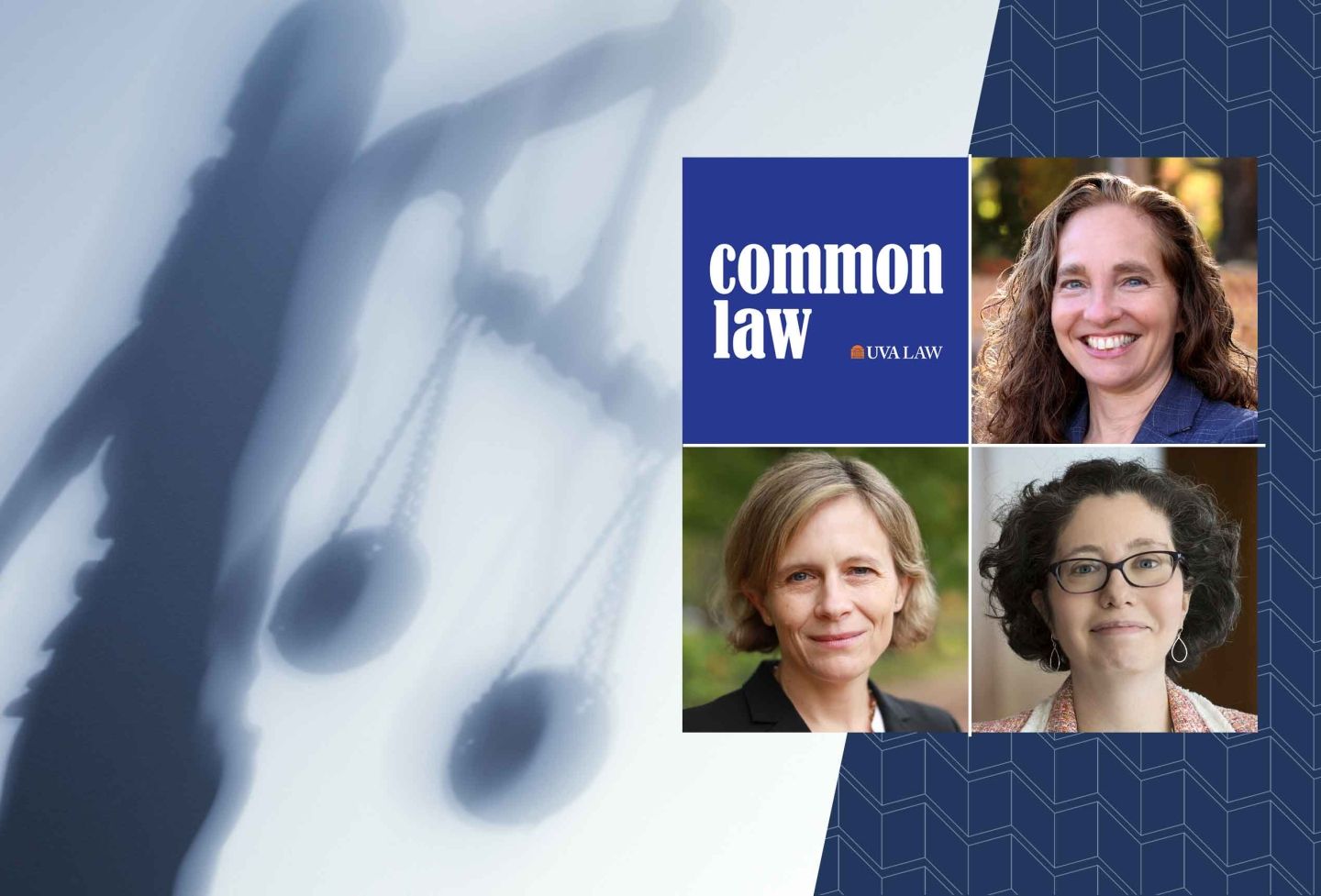Originalism Is Political, Not Judicial, Philosophy, Post Says
 Originalism is a highly effective political strategy, rather than simply a jurisprudential philosophy of adhering to the exact text of the Constitution and the original intent of the framers, said Robert Post at the biennial McCorkle Lecture March 29.
Originalism is a highly effective political strategy, rather than simply a jurisprudential philosophy of adhering to the exact text of the Constitution and the original intent of the framers, said Robert Post at the biennial McCorkle Lecture March 29.
Post, the David Boies Professor of Law at Yale Law School, explained to an audience in Caplin Pavilion that originalism is effective because it mobilizes conservative organizations to pressure the president to appoint judges who claim originalism as a philosophy for judicial interpretation, or who say they will be faithful to the original meaning of the Constitution.
“Originalism becomes a means of arousing voters on the right who then come out and vote for a president who appoint the right sort of justices who will create the ‘right’ sort of law,” Post said.
While looking at the original text of the Constitution, and the original intentions of the framers of the Constitution, has always been a method of judicial interpretation, Post said, the phenomenon of “originalism” became prominent around 1980 as a way of attacking the precedents of prior, more liberal Supreme Court decisions. Originalists claim that there is only one way to interpret the Constitution—through the original intent of the framers. Originalism has at its core an element of exclusivity, in that it argues that any way of reading the Constitution outside the framers’ original intent is improper, Post said.
“You see lots of groups, from anti-abortion groups, anti-criminal rights groups, who pressure the president to appoint justices who will ‘be faithful to the Constitution,’ meaning they will reverse liberal precedents of the Warren and Berger courts,” Post said.
Post pointed to Edwin Meese, attorney general under President Ronald Reagan, as the key figure in the rise of originalism. According to Post, Meese saw “the potential of originalism as a political ideology, and uses it to forge an alliance and to forge political interest on the right, to create support for president Reagan’s efforts, [and] to appoint a judiciary which will be responsive to right-wing constituent groups.”
Meese posits three arguments for the jurisprudential theory of originalism, Post explained. First, Meese said originalism preserves the law/politics distinction, and is a neutral mechanism for deciding constitutional law that is indifferent to whether it is right-wing, left-wing, progressive or conservative. In this sense, Meese said that originalism will preserve the Constitution from the “taint” of ideology and the corruption by politics. Secondly, Meese said that originalism preserves the democratic intent of the founders, and thirdly, Meese said originalism appeals to the fixedness of the Constitution: we have a written Constitution, so that it will be unchangeable and permanent, so that it will not be subject to every passing fad and fancy. According to Post, what Meese was suggesting is that the Warren Court had allowed liberal ideologies to corrupt the original fixity of the Constitution, when the whole point of a written Constitution is to keep it the way it is.
However, Post asserted, as a political practice originalism contradicts each one of these three arguments.
“The point is, that the political practice is proceeding along in a dimension and through mechanisms that are inconsistent with the overt jurisprudence or ideological content of originalism,” he said.
Post examined each of Meese’s claims, and pointed out how the conservative political practices of the purported originalists contradicted them. To Meese’s argument that originalism preserves the law/politics distinction, Post said there is not a politically literate person, in Meese’s time or now, who does not understand the term originalism stands in for a certain political ideology—everyone understood the term originalism to be the “centerpiece” of a conservative agenda.
“As a practical matter, the practice of originalism was thoroughly, and is thoroughly…a move in a political game, and understood to be associated with a particular conservative outlook,” Post said.
In response to Meese’s argument that originalism reserves the democratic intent of the founders, Post said there were moves by the Reagan administration, such as through litigation or judicial appointment, to change the way the Constitution is interpreted.
“Originalism was used as a vehicle to change the Constitution, not to preserve it in its original form,” he said. “The voters who are mobilized by this don’t…read disinterested books of history. That’s not what makes politics work in this country. That isn’t what makes people come out and vote for a president who will appoint a certain kind of justice.”
In response to the claim that originalism stresses the fixity of the Constitution, Post said, “If you look at the political practice of originalism, you will find that it’s suffused with values that have no textual orientation whatever.” In 1987 the Republican platform was to appoint judges who would protect traditional family values and the sanctity of human life. However, the text of the Constitution does not mention the sanctity of human life or the protection of traditional family values.
“The political practice of originalism and the jurisprudence of originalism are almost diametrically opposite. They are inconsistent in almost every respect,” Post concluded.
“A better interpretation of originalism is that it is not mobilization [by various conservative groups] around a certain methodology of interpreting the Constitution, as though everyone out there were worried about how actually you should read the text,” he said. “It’s mobilization around a substantive interpretation of the Constitution.”
Ironically, Post said, the position of the political left in recent years has supported precedence, judicial independence, and rule of law. According to Post, the left claims to support the idea of a living Constitution, but has practiced the law/politics distinction.
This is a losing position for the left, because people do not get out and vote for the independence of the judiciary, they get out and vote for a particular substantive position, he said. If the left wants to engage the right on the issue of originalism, Post said, then they must create their own substantive vision of how to interpret the Constitution, rather than take a stand on originalism from a theoretical standpoint.
Founded in 1819, the University of Virginia School of Law is the second-oldest continuously operating law school in the nation. Consistently ranked among the top law schools, Virginia is a world-renowned training ground for distinguished lawyers and public servants, instilling in them a commitment to leadership, integrity and community service.


